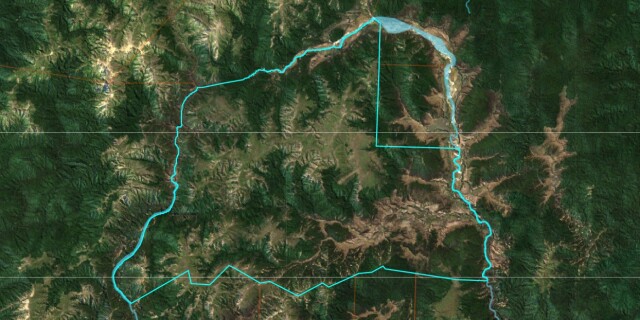Disputes
Herenga ā Nuku helps people find resolutions to outdoor public access disputes. We have a formal dispute resolution process. This FAQ answers common questions about all the steps involved in this process.
Questions:
- How can Herenga ā Nuku assist with dispute resolution?
- What is a “dispute”?
- What is facilitation?
- Do I have to pay for Herenga ā Nuku to investigate my concern?
- How long will it take?
- What happens when Herenga ā Nuku looks into an access enquiry?
- Who is involved?
- Can I change my mind about Herenga ā Nuku’s involvement?
- Will my name or other personal details be made available to others?
How can Herenga ā Nuku assist with dispute resolution?
Herenga ā Nuku staff and regional field advisors are available to provide independent and impartial advice on walking access and to help facilitate the resolution of access disputes. Advice of this nature can help the parties involved to identify the core issues, who should be involved in resolving them and what process might be followed to reach a resolution.
In most cases, Herenga ā Nuku will become involved in facilitating the resolution of a dispute only after enquirers have made reasonable attempts to resolve the issue directly with the parties involved, whether those parties be the people seeking access, private landholders or a local council or statutory authority.
Facilitation of dispute resolution is provided for in the Walking Access Act 2008 (section 10 (1) (e)). The Act enables Herenga ā Nuku to facilitate the resolution of disputes about walking access, including initiating negotiations about disputed issues, mediating disputes, and referring disputes to a court, tribunal, or other dispute resolution body.
What is a “dispute”?
A dispute is a disagreement among parties concerning the right of a member of the public to recreational access over any particular route, path or road. For example, a landholder not agreeing to remove a locked gate on an unformed legal road (ULR) or a territorial authority not agreeing to insist the lock is removed.
What is facilitation?
Facilitation is a process whereby a neutral party (in this case, Herenga ā Nuku) enables disputing parties to understand each other’s position fully, consider options, and resolve a problem together.
Herenga ā Nuku generally manages facilitation, usually one of our impartial and experienced regional field advisors. The process begins with Herenga ā Nuku gathering information and consulting and then moving to “managing” or “supporting” negotiation and problem-solving by the parties.
The facilitator acts as an “interpreter” and guide to enable good communication between the parties and ensure they understand the process. Ultimately, both parties should understand one another better, have accurate information, and clearly understand the problem.
The facilitator may provide written or verbal recommendations or advice for resolving the dispute but does not make binding decisions. When the process has been completed, the facilitator will write to everyone involved with details of the outcome (recommendations, advice, and actions).
Facilitation is flexible; the exact process will depend on the case’s nature and the parties’ wishes.
Do I have to pay for Herenga ā Nuku to investigate my concern?
No, there is no charge.
How long will it take?
The time needed to resolve a problem depends very much on the willingness of the parties to engage actively and be open to information, options and solutions. Many enquiries and cases are resolved in days or weeks, usually, once the parties clearly understand their and others’ rights, responsibilities and options.
Herenga ā Nuku may suggest approaches to minimise parties’ concerns, such as signage, fencing, stiles and route markers.
Some cases with a long history may take longer to resolve as parties may have become locked in their views. In some cases, agencies with legal responsibilities and obligations to manage access may not have been able to resolve them. A small number of Herenga ā Nuku cases have been active for many years.
What happens when Herenga ā Nuku looks into an access enquiry?
If you cannot resolve your access concern with the relevant landowner, property manager or administering authority, you can ask Herenga ā Nuku to look into the case.
When looking into a case on your behalf, Herenga ā Nuku will follow the following process:
- Confirmation. On receipt of your enquiry Herenga ā Nuku will confirm whether this is a public access case that we can investigate. For example, some access problems are between neighbouring landholders with no effect on public access. Herenga ā Nuku is not the appropriate organisation to manage these cases.
- Investigation. Herenga ā Nuku will gather information, investigate the access status of the land, examine parties’ rights and responsibilities, and consider options. This information is shared with all parties. In many instances, the Commission will resolve the case by providing information or advice and/or clarifying any misunderstandings of the law and people’s rights.
- Access Dispute. Suppose the problem is not resolved during the initial investigation and sharing of information, and relevant parties cannot agree on a possible solution. In that case, the case becomes an ‘Access Dispute’. We will offer to facilitate negotiations, conduct further research as appropriate, and suggest options or ways to mitigate parties’ concerns if resources allow.
- Case management. Herenga ā Nuku has no coercive powers, and its involvement in facilitating a resolution depends on the parties agreeing to the Commission’s assistance, remaining engaged in the process and discharging their legal and statutory responsibilities.
- Referral to a dispute to mediation, tribunal or other authority. Suppose parties cannot agree or reject Herenga ā Nuku’s advice or involvement. In that case, it may suggest to the parties that the case is referred to a court, tribunal or other dispute resolution body.
- Reporting. At the end of the process, Herenga ā Nuku may publish a case summary on its website or in newsletters and reports. Personal details are not included.
Who is involved?
This will depend on the nature of the case or problem. A regional field advisor usually represents Herenga ā Nuku. Other parties may include landholders, the person initiating the enquiry, agencies, and people who can provide expertise and information, such as local government.
Everyone involved in a case may meet with the facilitator as a group or separately. The process requires the engagement of all relevant parties, and the absence of the person who initiates an enquiry nullifies this process and limits Herenga ā Nuku’s ability to progress the case.
Can I change my mind about Herenga ā Nuku’s involvement?
Yes. Herenga ā Nuku wants to achieve practical outcomes with local interests and community support or consensus. The case may be best managed locally if a resolution is more likely without our involvement.
Will my name or other personal details be made available to others?
Herenga ā Nuku will not release personal information to others without your permission, subject to the Official Information Act 1982 and the Privacy Act 1993.


